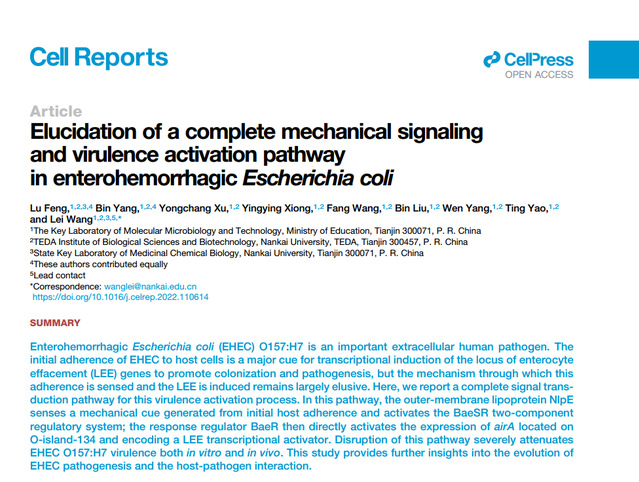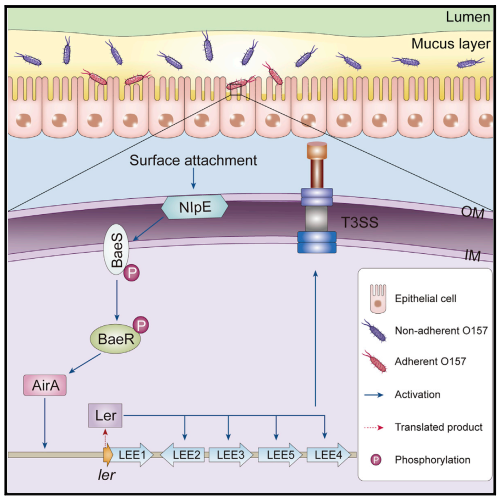Recently, a Nankai team led by Professor Wang Lei and Professor Feng Lu has made progress in the research of regulation mechanism of pathogenicity of intestinal pathogens. The research results were titled Elucidation of a Complete Mechanical Signaling and Virulence Activation Pathway in Enterohemorrhagic Escherichia Coli” and published online on “Cell Reports”.

How mechanical signals are converted into biological signals to regulate the life processes is an important biological question, but the research progress is slow. The mechanical cue generated by initial adherence of EHEC to host epithelial cells can induce the expression of pathogenic genes so as to promote the adherence and colonization in the host intestine, but the specific molecular mechanism has not been found out yet. In terms of these issues, the study of the team revealed the signal transduction pathway in this pathogenic activation process. In the path, outer membrane lipoprotein NlpE senses a mechanical cue generated by the initial host adherence and activates the BaeSR two-component system; the regulatory protein BaeR then directly activates the pathogenic transcriptional activator AirA, which encoded in genomic island OI-134. Disruption of this signal transduction pathway severely attenuates EHEC virulence both in vitro and in vivo. This study provides further insights into the evolution of EHEC pathogenesis and the host-pathogen interaction.

The research has won supports from the National Natural Science Foundation of China.
Link to the paper:
https://www.sciencedirect.com/science/article/pii/S221112472200362X

